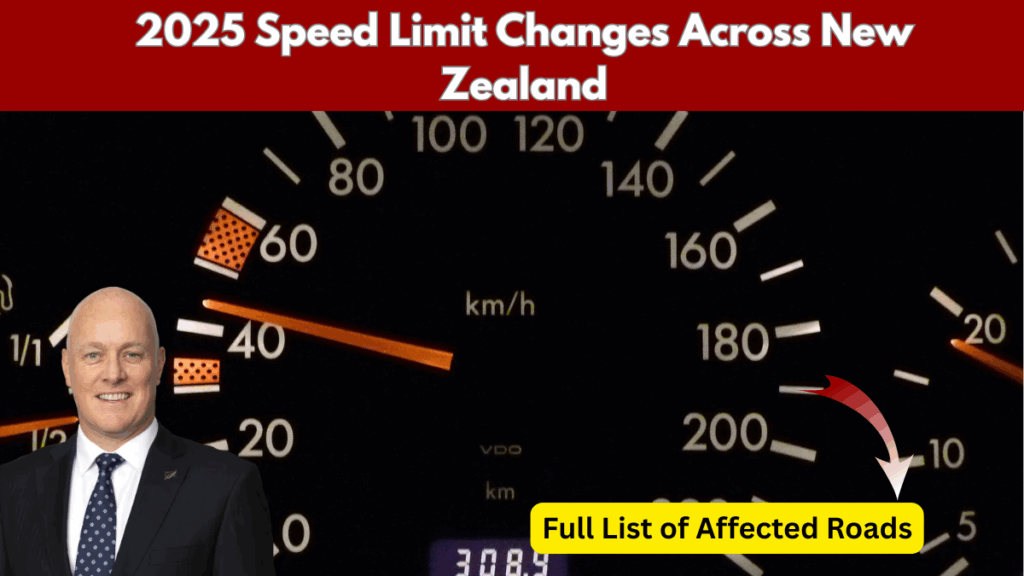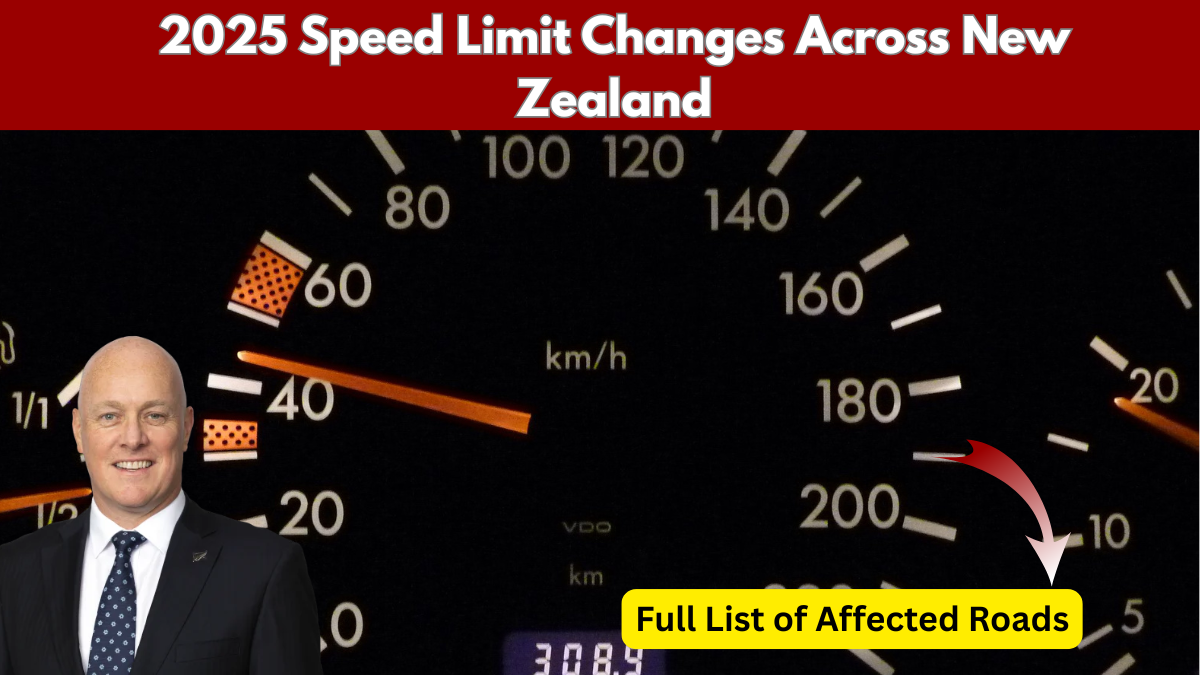The New Zealand Transport Agency (NZTA) has rolled out a new national policy on speed regulation starting from June 2025, with changes taking effect across urban, rural, and highway routes. These reforms are part of the government’s “Road to Zero” strategy, aimed at reducing road fatalities by 40% by 2030.
The new zealand speed limit changes are real and confirmed, and enforcement has already begun in multiple regions. Drivers in both the North and South Islands need to stay up-to-date to avoid penalties, licence points, and road safety risks.
This update explains the revised speed limits, affected areas, enforcement policies, and what all motorists should do to comply.

Why Are Speed Limits Changing in 2025?
The nz road rules 2025 reform is based on crash data, safety audits, and local authority recommendations. Between 2018 and 2023, over 60% of serious crashes occurred on roads where speed limits were not aligned with the physical conditions of the road.
Key goals of the change include:
Reducing high-speed crash fatalities
Making school and residential zones safer
Aligning NZ’s road safety approach with OECD countries
Supporting the shift to shared road use for pedestrians and cyclists
The speed limit changes are designed not just to reduce speeds—but to match speeds with real road risks.
New Speed Limits Across New Zealand – 2025 Update
The nz highway speed update includes changes in the default speed limits for key road categories. Here’s a breakdown of the new speed rules as of June 2025:
| Road Type | Previous Limit | New Limit (2025) |
|---|---|---|
| Urban School Zones (8am–4pm) | 50 km/h | 30 km/h |
| Town Centre Roads | 50 km/h | 40 km/h |
| Narrow Rural Roads (unmarked) | 100 km/h | 80 km/h |
| State Highways near towns | 100 km/h | 90 km/h |
| Motorways (major urban) | 100–110 km/h | No change |
| Gravel Roads (default) | 100 km/h | 60–80 km/h (based on terrain) |
These limits have been implemented based on safety risk assessments and will apply nationwide, regardless of local signage, unless posted otherwise.
Key Areas Where Speed Limits Have Changed
The NZTA has published a list of high-priority areas where speed limit changes have been completed or are underway:
Auckland Region: Lowered speeds in Grey Lynn, Glen Innes, and Mount Roskill
Wellington: 30 km/h school zones in Porirua, Lower Hutt, and Te Aro
Christchurch: Rural speed reductions in Selwyn and Waimakariri districts
Waikato: 90 km/h enforced on SH1 near Cambridge and Te Awamutu
Otago/Southland: Rural highways capped at 80 km/h for narrow roads
For a full interactive map of affected zones, drivers can use the NZTA Speed Management Portal.
Enforcement and Penalties Under New Limits
NZ Police have already begun using speed cameras, mobile patrols, and AI-enforced detection to monitor compliance with the speed zone update nz.
| Offence Type | Speed Over Limit | Fine (NZD) | Demerit Points |
|---|---|---|---|
| Minor breach (1–10 km/h) | $30–$80 | 10 points | |
| Moderate breach (11–20 km/h) | $120–$170 | 20 points | |
| Serious breach (21–30 km/h) | $230–$300 | 35 points | |
| Extreme speed breach (>40 km/h) | Court referral | Licence suspension |
Repeat offenders may also face vehicle impoundment and loss of insurance coverage for accident claims.
Speed-related tickets will be mailed or uploaded to the driver’s NZTA account, with payment due in 28 days.
How Drivers Should Prepare
To comply with the nz road rules 2025, all drivers should:
Update GPS maps and mobile apps to reflect new limits
Pay close attention to temporary road signs in construction or school zones
Use cruise control on highways to avoid accidental over-speeding
Review your car’s speed warning settings and activate audio alerts
Stay informed through your local council’s transport updates or NZTA newsletters
For professional drivers (e.g., freight, taxi, courier), companies are being advised to provide mandatory safety briefings to avoid fines and licence risks.
FAQs
When did the speed limit changes take effect?
The changes were officially enforced from June 1, 2025, across all regions of New Zealand, with nationwide application.
Are all school zones now 30 km/h?
Yes. All school zones now have a compulsory 30 km/h speed limit between 8 AM and 4 PM on school days, regardless of location.
Will motorways be affected?
No. Major motorways remain unchanged at 100–110 km/h unless otherwise posted.
Can I still drive 100 km/h on rural highways?
Only on roads where it is specifically signposted. Otherwise, many rural highways and unmarked roads are now capped at 80–90 km/h.
How will I know the correct speed limit?
The NZTA has updated all signage, and you can check your zone using the NZTA Speed Management Map or on your car’s navigation system if updated.
Click here to know more.
